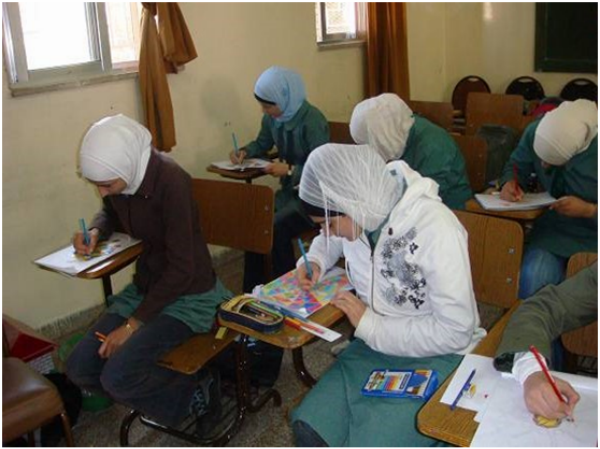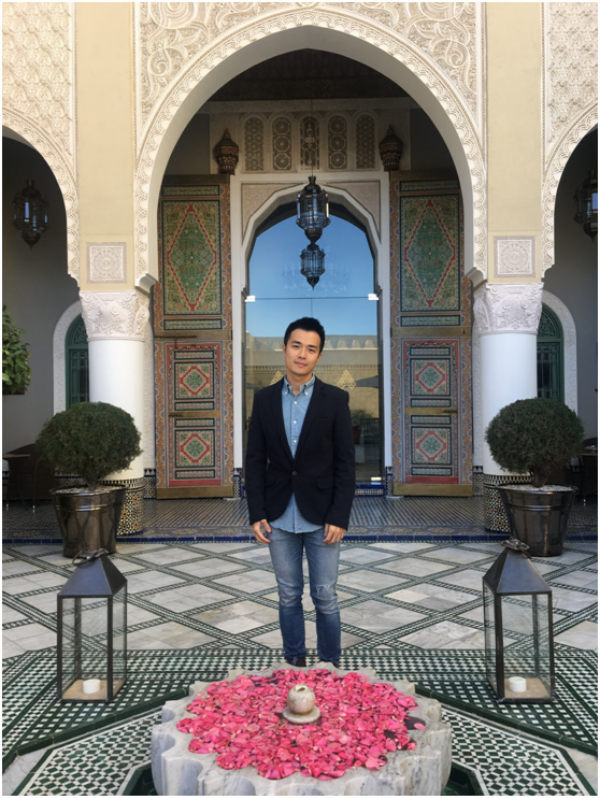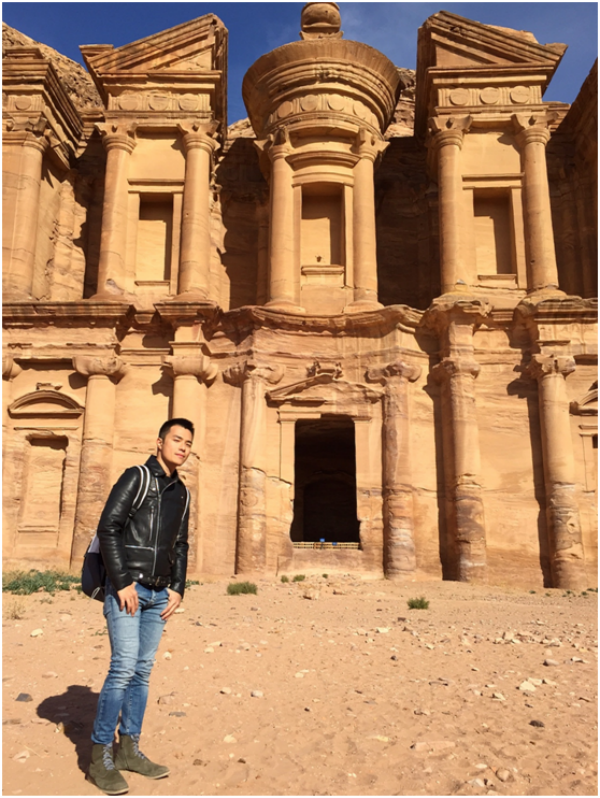Speech by Dean of the Yenching Academy of Peking University, Prof. Yuan Ming, at the “Middle East Regional Development Forum at Peking University”:
Respected President Lin Jianhua, Vice Minister Zhang Ming, Dr. Shafee, Dr. Popov, distinguished guests and friends,
Good morning!
In 2006, I went to the Middle East with Mr. Kofi Annan, who at that time had just stepped down from his position as the UN Secretary-General. We visited school children in refugee camps in Jordan. I took these photos of girls in an art class and boys before their class started. We also went to Palestine. In this photo, you can see young Palestinian men standing on the high wall. They had no jobs, nor did they have any joy. The last photo is Mr. Annan and I talking to young Palestinians in Amman, Jordan. They told us that their greatest hope was for their relatives in Palestine to come to Amman, because life in Palestine was in danger almost at any time. The young man on the left corner had just been to the Canton Fair in China. Being the only one who was optimistic, he told us that he saw opportunity in China.




It’s been ten years. These kids should be over 20 or almost 30 years old now. I wonder how they are doing, and whether they have found their position/place and opportunities in the wave of globalization today.
Today I’d like to share with you the stories of two young students of Peking University: Alice Su from the United States and Wang Dingnan from China. Both stories are closely related to the Middle East.
Alice Su is a Scholar of the Yenching Academy from the 2015 cohort. After graduating from Princeton University, she went to the Middle East, where she stayed for two years. As a freelance journalist, she interviewed many refugees in the Middle East. She was admitted to the Yenching Academy of Peking University at the age of 24. Her experience in the Middle East gave her more sensitivity and understanding to the cross-cultural training at the Yenching Academy. Once she wrote to me: “Graduating from Princeton, I was the typical student educated by US elite universities: idealistic, confident, and wanted to save the world. I came to the Middle East - in Jordan, Lebanon, Tunisia, and Gaza – and interviewed people living in refugee camps. Many of them have been attacked by IS. Some have spent seven days in the wilderness on an arduous trek. I learned to be humble. I realized that the only thing I could do for them is to write down for them the names of their lost relatives. These ‘refugees’ enabled me to see what great courage it takes to live a life. Displaced as they are, they care for each other. And I knew that instead of me saving them, it was they who were consoling me.”
During her time in the Yenching Academy, she was also involved in activities held by student organizations of Peking University. One of the organizations was Students' International Communication Association (SICA). In SICA, Alice soon became good friends with some students who are concerned about the Middle East. She co-initiated a project together with these students from the School of Foreign Languages and Law School, dedicated to providing service related to refugees. Now Alice is back in the Middle East. She took the advice of her thesis advisor, Prof. Wu Bingbing, of the Department of Arabic Language and Culture, went to Iran and learned basic Persian. To bridge China and the Middle East – this is her goal.



Wang Dingnan graduated from the School of International Relations of Peking University in 2010 and once served as vice president of Peking University Model United Nations Association (PKUMUNA). He has been living in the Middle East since 2011, and witnessed the turmoil and changes there since that time. He spent most of his time in Egypt but also visited Morocco, Iran and Saudi Arabia. He learned Arabic and made friends with many local young people. He is currently in Morocco, helping Chinese companies to connect with Morocco’s Internet start-ups. He told me on the phone that since last year, many young people in different countries in the Middle East started such online start-ups. They are small, but also easy and cheap to start and grow very fast. With young people being quick to imitate and create, small firms like this soon mushroomed since the beginning of 2016. Saudi Arabia and Iran experience a similar situation. It is very encouraging to see young people with direction and confidence. He also told me, only when you go to the Middle East, learn the language and know the culture can you really take root and know that many young people there are exploring a way that draws lessons from the West and features indigenous innovation at the same time. It resembles China’s development in many ways. These are positive signs, but are they sustainable? Can they reach economies of scale? Countries in the Middle East vary widely in terms of national conditions and social system due to historical and cultural reasons. What kind of force can be formed, interiorly and exteriorly, to promote such positive momentum and to assist young people on their way to entrepreneurship and development? In February, Wang Dingnan will come to the Yenching Academy and share his ideas and experiences with scholars here.


These two Beida graduates are seen as role models among their peers. This is the age of Internet, and many articles they wrote about the Middle East are widely spread online. They are two youth representatives from China and from the US. In the history of mankind, when did we have such common concern for one particular region and such intense communication and exchange through network information? When did we ever pay such common and close attention to the problems of one region, and invest ourselves into them to look for solutions and hope together? They linked their destinies to this region, and spoke out about life experience like “what great courage it takes to live one’s life” and “… instead of me saving them, it was they who were consoling me.” These young people are telling us about what is the community of common destiny for all mankind.
Peking University is the place to nurture and develop talent for the future. Cross-cultural competence, which is the ability to build bridges that connect hearts together, takes a highly important part among the multiple capabilities that future talent requires. Many of China’s outstanding diplomats present here are my old friends and good friends, who for decades have erected bridges between China and the Arab world, and I pay tribute to them. I hope they come to help us, help Peking University and help these lovely young people more. To be with young people is to be with the future.
Thank you!